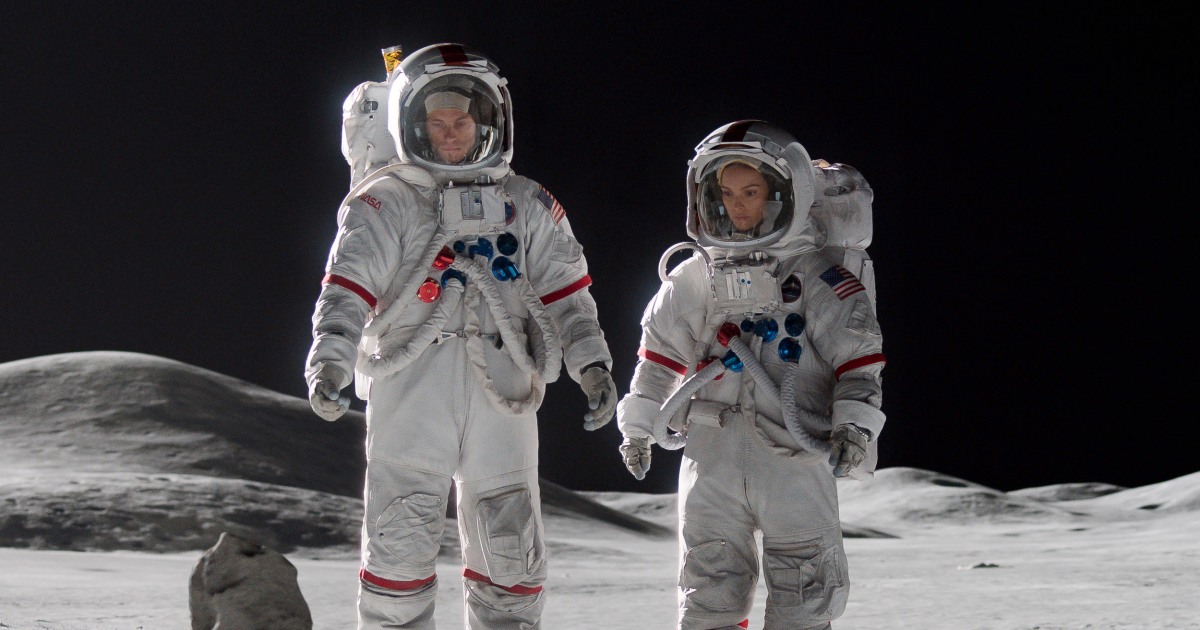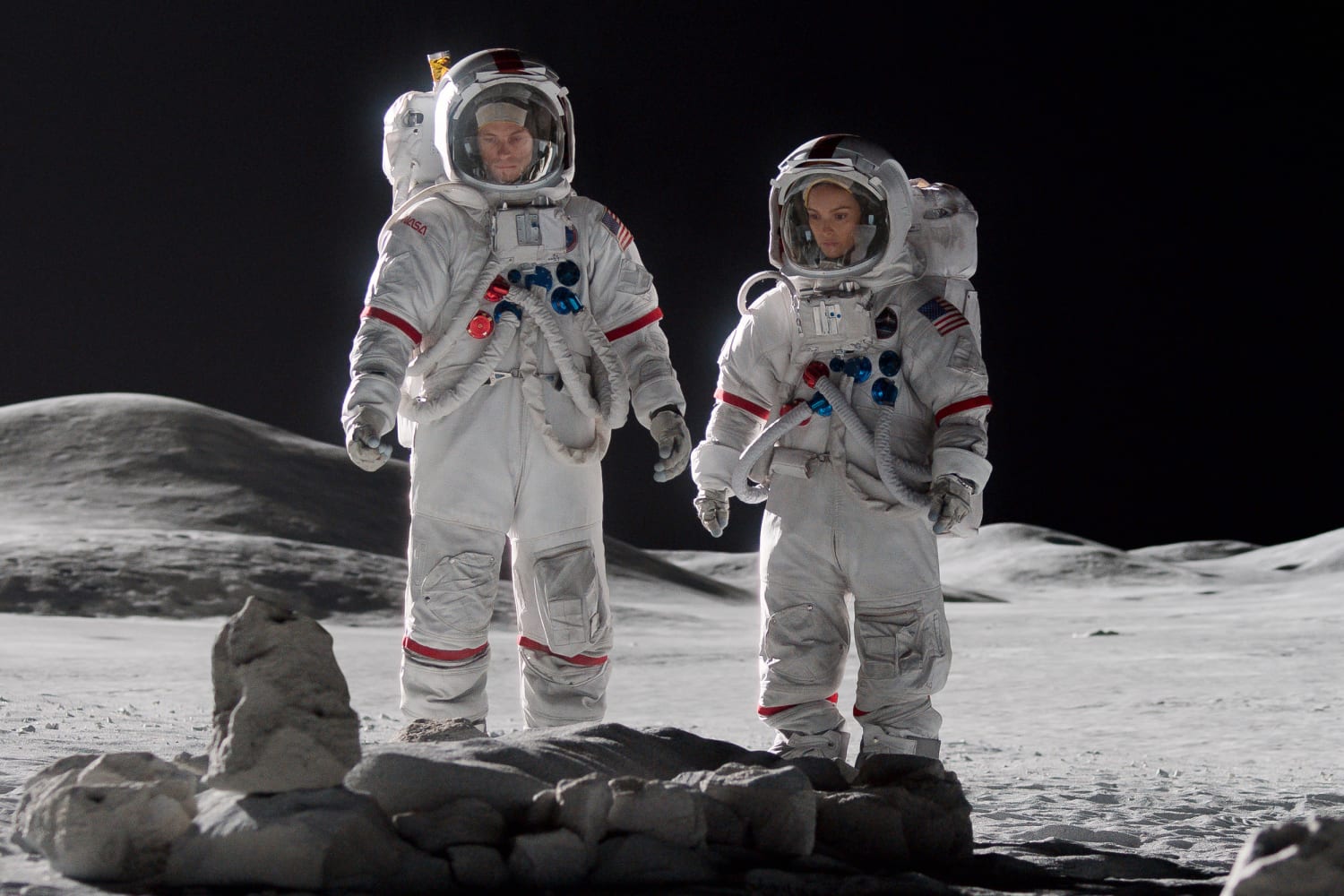
NASA’s new Mars rover, Perseverance, on Thursday successfully touched down on the red planet to kick off a new search for alien life. In a bit of fortuitous timing, perhaps, a day later Apple TV+ premiered the first episode of the second season of “For All Mankind,” which is about an alternate reality in which the U.S. lost the space race to the USSR. While it’s too soon to tell if this week’s real-life space drama will provide a ratings bump for Apple’s fictionalized story, those who do tune in should be pleasantly surprised by the upgrades made to Ronald D. Moore’s interesting but slow-burning first season.
Those who do tune in should be pleasantly surprised by the upgrades made to Ronald D. Moore’s interesting but slow-burning first season.
Apple TV+ could use a win. Early reviews for the streaming service were surprisingly brutal, a sharp contrast with the success of Disney+. Part of the problem was that Apple launched with only four original titles and lacked an in-house catalogue. Other than the quirky “Dickinson,” these initial offers felt oddly self-satisfied, and “For All Mankind” was no exception. Though Moore had multiple hits under his belt, notably “Battlestar Galactica” and the ongoing Starz series “Outlander,” he’d never worked in streaming before, and his first season fell into the same trap several early Netflix productions did: It assumed the ability to binge meant one could pace a season like a 10-hour movie.
Apple likes to keep its developmental processes a secret, whisking back the curtain to reveal a perfectly finished product. Yet here it was, unveiling shows that not only weren’t ready for prime time but made rookie mistakes any seasoned TV executive could have flagged.
But executives, convinced the shows were simply too big to fail, greenlighted second seasons of all four of Apple’s flagship series ahead of launch. This meant series like “For All Mankind” were given a second chance to make a first impression (and the pandemic gave producers an unexpected grace period). “For All Mankind” has definitely benefited from Apple’s support and this extra time.
The new season bring a new era. Season one began in the 1960s but sped through to the mid-1970s. The new season picks back up a decade later, catching viewers up on 10 years of news with a cleverly interwoven tapestry of real events (Ronald Reagan’s original acceptance speech for the Republican presidential nomination) juxtaposed against the series’ alternate timeline (in which Reagan wins the presidency for the first time in 1976).
By the time we begin in 1983, John Lennon is still making music, Prince Charles married Camilla instead of Diana and the first season’s tiny lunar hub has grown into the Jamestown complex. The question is no longer if the space program will survive, but rather what it exists to do. Is it for scientific exploration, as argued by NASA manager Margo Madison (Wrenn Schmidt)? Or will Reagan side with Johnson Space Center’s top-ranking military officer, Nelson Bradford (John Marshall Jones), who sees the station as a continuing proxy for the ever-escalating Cold War?
By staying in 1983, and Reagan’s (fictionalized) second term, the series also solves some of its season one issues with character development. The first season was too interested in spelling out the changes in the timeline rather than investing in its emotional drama. Characters like astronauts Gordo Stevens (Michael Dorman) and Tracy Stevens (Sarah Jones), who are modeled on real-life astronaut Gordon Cooper and his wife Trudy (who gave up flying to support her husband’s ambitions), felt two-dimensional — unless you happened to already know the historical context. By holding steady in one place, these characters are given a chance to breathe and explore what a more diverse space program really means.
In this more socialist-driven timeline (thanks, Soviets!) women may be part of the team, but that doesn’t mean lesbian Ellen Waverly Wilson (Jodi Balfour) can live openly, nor can her also-closeted husband, Larry (Nate Corddry). Meanwhile, Danielle Poole (Krys Marshall) finds she has to fight every step of the way against institutionalized racial prejudice. The threads being built here eventually weave into a larger picture worthy of either a weekly watch (Apple TV+ is going full old school with releases once a week) or a binge once all 10 episodes are out.
Even Netflix knows streaming services weren’t built in a day, nor were production companies like Disney. And since its less-than-auspicious launch, Apple has quietly but steadily improved, earning praise for docuseries like “Little America,” creating sleeper critical darlings like “Ted Lasso” and bringing in viewers with star-studded mysteries like “Defending Jacob.” Apple’s approach to TV content may not be about changing the world with a bang, but about building a legacy over time. Just like NASA’s new Mars rover, “For All Mankind” is proof that perseverance works.
Source: | This article originally belongs to Nbcnews.com










